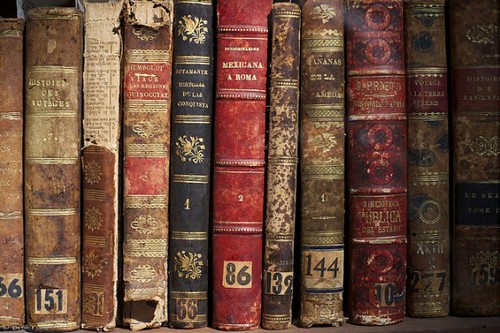
PREV ARTICLE
NEXT ARTICLE
FULL ISSUE
PREV FULL ISSUE
ON THAT OLD BOOK SMELL
James Higby, whose article "Looks Like I Picked the Wrong Week to Give Up Sniffing Books" appeared in the October-December 2011 issue of our print journal The Asylum forwarded this follow-up from Smithsonian Magazine. Thanks!
-Editor

Smell is chemistry, and the chemistry of old books gives your cherished tomes their scent. As a book ages, the chemical compounds used—the glue, the paper, the ink–begin to break down. And, as they do, they release volatile compounds—the source of the smell. A common smell of old books, says the International League for Antiquarian Booksellers, is a hint of vanilla: “Lignin, which is present in all wood-based paper, is closely related to vanillin. As it breaks down, the lignin grants old books that faint vanilla scent.” A study in 2009 looked into the smell of old books, finding that the complex scent was a mix of “hundreds of so-called volatile organic compounds (VOCs) released into the air from the paper,” says the Telegraph. Here’s how Matija Strlic, the lead scientist behind that study, described the smell of an old book: A combination of grassy notes with a tang of acids and a hint of vanilla over an underlying mustiness, this unmistakable smell is as much a part of the book as its contents.
To read the complete article, see:
That “Old Book Smell” Is a Mix of Grass and Vanilla
(blogs.smithsonianmag.com/smartnews/2013/06/that-old-book-smell-is-a-mix-of-grass-and-vanilla/)
The Numismatic Bibliomania Society is a non-profit organization promoting numismatic literature. See our web site at coinbooks.org. To submit items for publication in The E-Sylum, write to the Editor at this address: whomren@gmail.com To subscribe go to: https://my.binhost.com/lists/listinfo/esylum All Rights Reserved. NBS Home Page Contact the NBS webmaster 
|